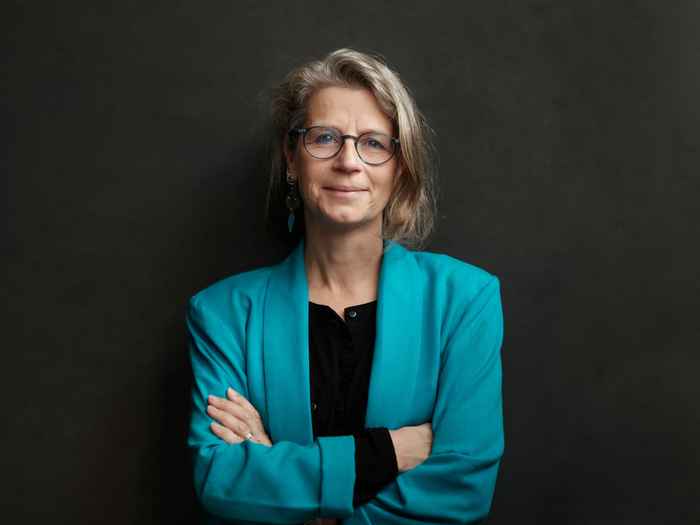‘When you work with the same elderly people with autism for a long time, you can get them more actively involved in the research’
Hilde Geurts shows how to systematically collaborate in scientific research on autism: with clinicians, but more importantly: with the people affected
6 May 2024

In 2009, Geurts received a question from a patients’ association: why is so little known about elderly people with autism? ‘I had noticed myself that hardly anything had been written about this in the literature. Based on this observation, we started having casual conversations with the target group: we asked how things were going, what kind of issues they had encountered and what they had questions about. After this stock-taking exercise, we began a larger and more structured investigation.’
Geurts co-founded the Academic Workshop on Autism in partnership with several clinical institutions, with the aim of finding a better way to transfer knowledge from science to practice.
The most diverse think-tank possible
Geurts held interviews for a kind of “think-tank” of over-55s with autism. Interest groups could nominate people to participate. The research team tried to assemble as diverse a group as possible: by gender and time of diagnosis, but also things like their views on autism. ‘At the same time, representation was tricky. People with autism sometimes have difficulty with language, but the people who signed up for this think-tank often had above-average language skills. Many of them were also highly educated. It was difficult to get a true cross-section of the population to participate.’
We found that managing expectations is very important.
Increasingly intense collaboration
The selected participants met with the research team for half a day four times a year, but there was also regular email contact in between. Participants engage in active thinking, and therefore get paid for their time. The advantage of these kinds of collaborations is that they deliver more as the years go by. ‘I’ve been working with some of these elderly people for 12 years. By now, they’re familiar with the ins and outs of scientific research. Over the years, they’ve become more proficient, and can share ideas about things like data interpretation.’
The loyalty of think-tank participants is high. ‘When our last project wrapped up, all of the participants indicated that they would like to participate again as soon as there was money for a new project. Participants in a think-tank for another long-term project co-wrote a research plan on GP care for autistic adults. They collaborated on the article and on a fact sheet with 22 recommendations to improve GP care in that are (in Dutch).’
Managing expectations
‘One of the things we’ve learned while working with the various think-tanks of adults with autism and their families is that managing expectations is crucial. Participants’ expectations of the contribution they could make were sometimes too high: their input is incredibly valuable and taken very seriously, but not every individual experience or opinion is reproduced verbatim in the study. Moreover, some participants have had bad experiences with social workers and researchers. The scientific process can be very frustrating for some.’
The conversations that come out of these meetings can create greater understanding between elderly people with autism and the people close to them.
Results in practice
In addition to her work as a researcher at the UvA, Geurts works for Leo Kannerhuis, an autism treatment centre and knowledge hub. She also works closely with other clinicians. This allows her to respond to issues that arise in practice. One of the results from working closely with both clinicians and elderly people with autism is a psychological education module called Older and Wiser. The module discusses problems in daily life and possible solutions to them. It consists of meetings where elderly people receive information on how their brains process information, as well as on the importance of having a social network. Geurts says: ‘These meetings are not just about factual knowledge, they’re also about how people with autism and those around them experience it. These kinds of conversations increase understanding on all sides.’
The module is not the only tool to emerge from Geurts’ research. ‘Early this year, as part of three doctoral programmes, we produced some animated videos. The videos are intended as a conversation starter for practitioners and their clients with autism. They cover information processing, camouflaging autism and subgroups within autism. We’ve had a lot of positive feedback on these videos from practitioners.’
Above you can see one of the animated videos from Hilde Geurts’ research. Watch the other animated videos here and read a more detailed explanation of their content (in Dutch).